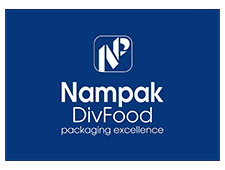JOTUN PAINTS SA: Jotun Goes Lean in Growth Push
Jotun Paints South Africa commands significant market share across various industries because of its delivery of the absolute pinnacle of performance coatings. Paints from Jotun are thoroughly researched, backed by global application, made to international standards, and manufactured locally. The company’s new MD and National Sales Manager talk to Enterprise Africa about ongoing success across southern Africa.
Protectors of property, Jotun Paints (Jotun), is one of the world’s leading coatings corporates, delivering premium quality products for decorative, marine, protective, and powder applications. With more than 10,000 employees globally, active across more than 100 countries, generating operating revenues of more than US$2 billion, Jotun is a powerhouse paint player.
In South Africa, the regional business looks after the entire SADC area, focussed on marine coatings and heavy industrial applications. Last year – it’s 25th in SA – Enterprise Africa heard from former-Managing Director, Trevor Maughan about strong Jotun Paints SA ambitions after a very challenging period.
In 2022, Maughan has retired and another Jotun-lifer, Martin Ibsen, has taken the reins in South Africa, hoping to roll out a new strategy of lean management to mitigate against the new challenges that exist as a result of the old.
“You have to be lean,” he says. “You can no longer rely on getting materials within six weeks. In fact, we are now talking about three or four months in many cases. We have to store more to be more flexible. We have signed a new lease at a warehouse with extra storage capacity to facilitate the growth that we plan for.”
IN A GOOD PLACE
Producing the highest quality paints in the world at scale, to a uniform standard, and holding enough stock to satisfy clients across multiple industry sectors is no easy task. Demand has been decimated and routes to market totally twisted, and this is where Jotun’s size and experience has helped it to carefully navigate the difficult conditions.
“Covid certainly put the pressure on,” admits Ibsen “but we think we are in a good place having realised good growth. We do struggle with the continuous flux with raw material pricing and availability. Making paint is very high-tech in many ways. We make paint for hot surfaces, industrial coatings, offshore protection – it requires a lot of research. Many people could go online and find out how to mix some paint, but how to do you make large quantities of chemically identical paint, at different locations all over the world. That requires sourcing raw materials globally, from global partners, but at the same time trying to source as much locally as possible,” he explains, adding that some ingredients are only available from Germany and simply not manufactured locally.
With a Cape Town production facility, Jotun Paints SA does invest in a local supply chain, and has benefited from strong relationships which Ibsen is keen to foster further.
“It is important to support the supply chain,” he states. “Financially, it can be cheaper to import everything, but with current shipping lanes and pricing, there are risks. Jotun has a strategy around partnering with suppliers both locally and globally and we do want to grow African businesses by having African partners as much as possible by investing in that supply chain.
“Two years ago, we did have to manage costs effectively during the pandemic and we are rebuilding relationships with suppliers to ensure we support business in Africa and an African supply chain.”
QUALITY OVER PRICE
National Sales Manager: Performance Coatings, Gareth Alcock also has concerns about the disruption in the supply chain, but insists that the company’s focus on quality product will continue to set it apart.
“Shipping has been a disaster since Covid, and it continues,” he says. “What makes it even more difficult is that there are not as many big vessels coming into South Africa. Large vessels go to Singapore or similar and then unload stock onto smaller vessels before sending them into South Africa. That pattern effects everyone in terms of the supply chain.”
To manage this situation, especially in combination with economic uncertainty (globally and locally), some businesses have looked to cut cost. Jotun has no interest in price waring with competition and gains its market share through value around excellence for client and end-user.
“There has been a noticeable impact with companies trying to reduce costs in their operations, trying to make up for the losses in the previous years. We are combating that by focusing on quality – it’s not all about price – and selling higher volumes of product that will give you a lot more per square meter. Not to mention the difference the performance of the products will give – good antifouling performance, chemical or heat resistance for a long period brings the value needed for the end client.
“We are also keen on serving the market in the SADC region. We have seen a reduction in stock holding, but sales remain very strong. The market has come back, we do see a change in the market, but it’s about the amount of stock being purchased combined with our conversations about the quality of our products to combat the pricing issue,” explains Alcock.
The paints and coatings industry is expected to boom in South Africa, reaching $2.1 billion by 2026. This should be fuelled by growth in the construction and infrastructure sectors, as well as a reduction in imports resulting from supply chain disarray. To take full advantage of this opportunity, Jotun is reinforcing its foundations in SA, focussing on development and retention of the very best people.
PERFECT PENGUINS
“Jotun has a policy of changing management every five years. We have a great pool of managers to pick from and we choose to effectively benefit the local unit with a global perspective,” says Ibsen, a veteran of the company for a quarter century, holding posts around across the globe including senior roles in Denmark, China, Norway, and Germany.
“By moving people around, we contribute to our strategy at global level, which is organic growth. We do not buy companies, we employ good people, and we bring them up through the systems. We like people to have a base level of theoretical knowledge and we are looking at systemising our trainee programme to continuously bring in interns. We try to then keep the best people and assist them to grow as we grow, rather than trying to go out and find superman in the market but realising he’s busy. Training and sharing across borders is an important element within Jotun values, every year we have fellow penguins doing training in other countries. Jotun also offer both short term and international assignment for those keen on an international experience. This helps the retention of staff – we have several employees with over 25 years’ experience.
“If you look at the countries where Jotun has had real success over the years – Turkey, China, Korea, Saudi, Oman etc – that has been our principle; bring in young people, train them up, give them challenges, allow them to grow, and make it common for people to stay with us for 15-20 years.”
This strategy is clearly paying dividends, allowing the company’s people (or ‘penguins’ as they are affectionately known) to drive growth across the board. In heavy industry, Jotun leads the way across multiple sectors, and Ibsen has no intention of losing momentum.
“We are growing and investing, and we intend on that continuing,” he says.
“We are growing in the oil and gas industry in Angola with all of the majors that are active there. Local applicators buy from us and some of them are part of bigger chains.
“We see growth potential in mining,” he adds. “We are interested in seeing how development continues in Mozambique. That is where our global reach comes into play. We have a global team of people working with very niche products, of the highest quality, for projects like this. Our colleagues in Korea and France work closely with the various stakeholders on projects like this.”
Alcock agrees, stating that market leadership across the industries in which Jotun plays is always the goal.
“In the past four or five years, we have gained a significant portion of market share in the industry and we are one of the market leaders in terms of protective coatings in South Africa.
“We are still strong in the refinery business, and we are the market leader in shipping. We are very strong in the renewable energy sector as well as the infrastructure market – buildings, bridges etc. These remain our core focus right now.”
Investigations into new products, where Jotun is strong globally – including for flooring and intumescent coatings for southern African applications – will continue to drive innovation for the business in SA. With many focussed on ‘green credentials’ as a strategy for future growth, Jotun calls them Greensteps – especially in industry sectors that have previously struggled with green transformation – Jotun has set out its ambitions at group level, but Ibsen is clear that significant positivity has already been achieved. Sustainability is on the agenda in Jotun both globally and locally, when it comes to customers, the most sustainable system is often the best performing and longest lasting. Here, Jotun has example of coating systems protecting offshore structures for more than 40 years.
“It is important to remember that there is a drive around being green but at the end of the day, the greenest thing you can do is make something that lasts – that is why we are so successful,” he says.
After releasing a very positive set of results in October 22 – including increases in sales volumes, pricing, top line growth and operating revenue – the global Jotun group is in very good shape, navigating the lingering Covid challenges without major setback. Agreeing the start of production at a new facility in Algeria (in partnership with Med Investment Holding Spa and Technover P), Jotun’s success in Africa now covers Africa from south to north.
From Cape Town, the local operation’s new leadership will be looking to push hard for continued success with its strategy, and will always delight clients, protecting property with every application.


